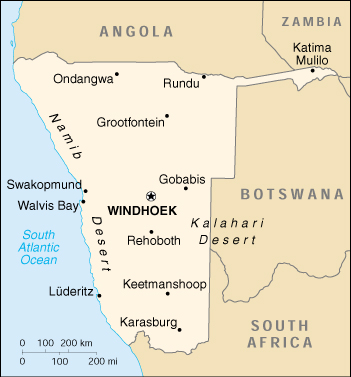

Status Quo Side: Namibian regime/South Africa
Non-Status Quo Side: UNITA, Angola, Cuba
Region: Africa
Conflict Type: Colonial
Issues in Dispute: Ethnic, Independence
South Africa took over Southwest Africa from Germany in 1915, and in 1920 the League of Nations awarded it to South Africa as a Class C mandate. Pretoria administered the territory as if part of segregated South Africa. In 1947 the United Nations withdrew the mandate in order to grant full independence. South Africa ignored this action and many such that followed. In tune with the liberation movement that swept Africa in the 1960s, the Southwest Africa People's Organization (SWAPO) was founded in 1961.
SWAPO formed a military wing, the People's Liberation Army of Namibia (PLAN) in 1967. Despite military aid from the USSR and Cuba, SWAPO's isolation confined activities to political work and small-scale terrorism. In the 1970s SWAPO became increasingly Marxist in political complexion.
Following Angola's independence from Portugal, Marxist MPLA provided SWAPO with territorial shelter and logistical support, making it possible for SWAPO to increase the number of raids from Angolan bases, countered by South African attacks into Angolan territory [see ANG and ACW]. By 1978 the rebels had 18,000 soldiers with aid from Cuban military "advisers". Due to the strategic and ideological affinity between the MPLA and SWAPO, the Angolan civil war and Namibian independence were inextricably linked, with SWAPO engaging UNITA forces as well as South African. The UN Namibian Independence resolution 435 of 1978 called for disengagement by both Cuban and South African forces, but neither complied. SWAPO successes waned during the 1980's until 1987 when Cuban forces, now numbering tens of thousands, directly engaged South African forces on an ever larger scale.
The thaw in US-Soviet relations made possible UN mediation leading to the withdrawal of Cuban and South African troops from Angola, and to the implementation of UN resolution 435.
With withdrawals essentially completed, with UN-supervised elections having resulted in a SWAPO win by an overwhelming margin, the independence of Namibia was celebrated on March 21 1990.